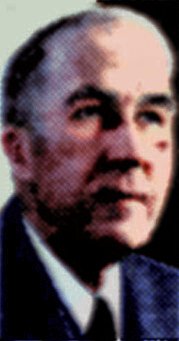
Simms: History’s greatest decisions slated at Big Three meeting
Potsdam session to test workability of United Nations conference rules
By William Philip Simms, Scripps-Howard foreign editor
WASHINGTON (SHS) – Through President Truman at the Big Three meeting at Potsdam, the people of the United States are about to make some of the most important decisions in all their history.
Not even the 1815 Congress of Vienna faced such tremendous issues. The Napoleonic wars of 130 years ago left Europe comparatively intact. Today nearly the entire continent is a shambles, materially, morally and politically. And the world’s future depends on whether President Truman, Prime Minister Churchill and Marshal Stalin can lay the foundations for a new structure.
Must agree on rules
This means, so far as the American people are concerned, that the President must commit the United States to international cooperation far beyond anything ever before contemplated, let alone attempted.
Actually the Big Three meeting at Potsdam is more important than the United Nations Conference at San Francisco. At San Francisco, rules were formulated for safeguarding the future peace. Potsdam will largely determine whether or not the San Francisco rules will, in fact, be workable
What is widely overlooked is that peace terms have yet to be agreed upon. In fact, there is considerable doubt that a full-dress peace conference will be held. Already some of the Allies have made unilateral and bilateral decisions vitally affecting the peace, often without bothering to consult other interested parties. Potsdam will have to review these faits accompli and reconcile them, if possible, with decisions yet to be made.
8 points to consider
The Big Three must also consider:
-
What is to be done with Germany and the German people; Europe’s new boundaries; whether vast populations are to be shifted from one area to another and, if so, where and how; how to govern what is left of Germany and whether it will be Sovietized or democratized.
-
Allied policy with regard to Poland, Lithuania, Estonia, Lativa, Finland, Romania, Bulgaria, Turkey, and the Middle East, Hungary and Austria.
-
The role of France in Europe. Up to the present, France has been absent from these meetings despite the fact that she will play a vital role in the world, especially in Western Europe.
-
Problems presented by Italy and Italian colonies.
-
Allied policy toward Spain, Switzerland and other neutrals.
-
The question of lifting the news blackout now virtually complete in zones occupied or controlled by Soviet Russia.
-
European relief – social, financial and economic; and possibly–
-
Russo-Japanese neutrality. This would entail a review of the Cairo pronouncement of Roosevelt, Churchill and Chiang Kai-shek regarding Manchuria, Korea and other Japanese conquests and also of Russia’s China policy in the light of the recent Soong discussions in Moscow.
Small nations voiceless
Setting the fate of small nations without letting them be heard admittedly is an anachronism after a war which presumably was fought partly in defense of the sovereignty of small nations. And much has been said about the autocratic behavior of the Big Fur (Britain, Russia, Austria and Prussia) at the Congress of Vienna. But there the little nations were at least permitted to talk, even if they were not always listened to.
At Potsdam, it seems, the little peoples of the world will be more or less voiceless – unless, that is, President Truman speaks up for them as some believe he may. He knows public opinion in America would not long support the use of force to perpetuate an unjust peace.
